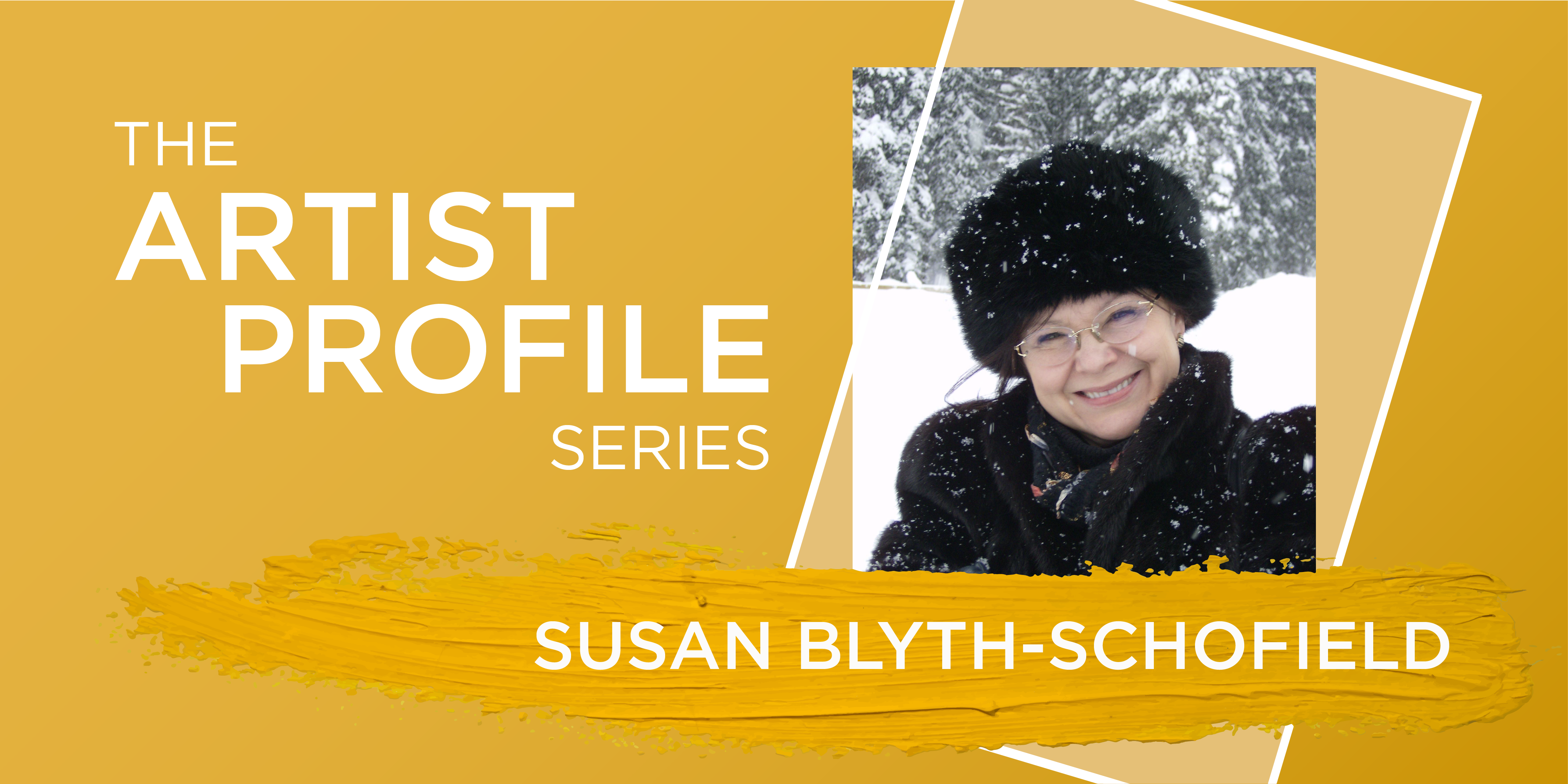The CDCC Artist Profile Series – Susan Blyth-Schofield

Susan Blyth-Schofield – Biography
Since childhood, soprano Susan Blyth-Schofield has spent her life in the arts.
As a performer Susan received critical acclaim across Canada and in Europe with such companies as The Canadian Opera Company, Opera Lyra Ottawa, Comus Music Theatre, Toronto Operetta Theatre, and Festival Estival Musical. In addition to standard concert repertoire, Susan enjoyed performing with The Ceremonial Band of The Governor General’s Foot Guards and at Rideau Hall.
Stage directing was a natural progression from her work in lyric theatre. Her credits include directing for Opera Lyra Ottawa and other companies and schools throughout the province, and work with Music Unlimited in Belgium. She has directed Carleton’s Musical Theatre Ensemble since its early days in 2012, and will continue this fall with the online version, now called the Lyric Theatre Ensemble.
Susan has taught voice and interpretation for over thirty-five years, and is now teaching online. She joined Carleton Music as a performance instructor in 2002, and also lectures there in Opera and the History of Musical Theatre.
Susan holds a Masters in Performance Studies (City University, London, England), a Bachelor of Music in Performance (University of Toronto), and is an Associate of the Royal Conservatory of Music, Toronto. Susan is a member of The National Association of Teachers of Singing (currently serving as the Quebec District Governor), The Ontario Registered Music Teachers Association (currently serving on Provincial Council and as President of the Ottawa Region Branch), Canadian Actors’ Equity Association, and The Association of Canadian Television and Radio Artists.
The CDCC Artist Profile Series – Q&A
Q. What initially drew you to study and eventually teach voice?
A. I started singing and performing as a very little girl. The only thing I ever wanted to do was to perform and to teach. I remember telling my grade 9 music teacher that I was going to go to the University of Toronto for a Bachelor of Music in Performance, and sing with the Canadian Opera Company – and I did.
Q. What is your favourite part of teaching and directing CU Musical Theatre and Opera Ensembles?
A. Working with the students. Seeing them light up when they discover something new and when something they have been working on clicks. It really is all about them.
Q. What is it like to rehearse at Carleton Dominion-Chalmers Centre?
A. Good. It was a change for me. Rehearsals for the Musical Theatre Ensemble and, even before its creation, the Musical Theatre workshops had all been in the Patrick Cardy Studio at Carleton. But the staff at CDDC are amazing and they made the transition a snap.
Q. What advice would you offer to someone trying to pursue a career in opera or musical theatre?
A. Obviously to work very hard at their craft should go without saying. Be versatile, flexible, and resilient, you never know where you will find an opportunity. Be open to having a mosaic career in the arts. Remember that auditioning is a huge part of your job description as a singer, and just because you didn’t get the part doesn’t mean that they didn’t like you or that they won’t remember you for something else. Build a reputation for being easy to work with – when it ever comes down to that flip-a-coin kind of casting situation for a part (and it does more often than you might think), they are going to hire the person who is pleasant and easy to get along with.
Q. How has your work been impacted during COVID-19?
A. On the voice teaching front, I have basically moved from in person lessons to online lessons. Most of my students have continued, so in some ways the impact has been less than I expected. On the directing side of things – there is not really any work at the moment so I am doing other things. Taking masterclasses, attending conferences, networking …
Q. How have you had to adjust the work you do with your students in these extenuating times?
A. I felt a responsibility to make online lessons the best possible experience that they could be, so I have become very good at using tech of all kinds. I have also become more creative about the assignments I give. Rather than waiting for things to go back to “normal,” I have accepted that this is going to be the “new normal” for a while at least, and I am trying to teach the skills (vocal and technical) that my students need now and will need in the future. Video and audio auditioning has long been the first step for many competitions, and professional companies are moving this way. I have also been doing a lot of character work with my students. The spoken word is not as affected by laggy platforms.
Follow our #CDCCartistprofiles Twitter thread to track when new profiles are added each week this fall!
Click here to return to The CDCC Artist Profiles Series main page.